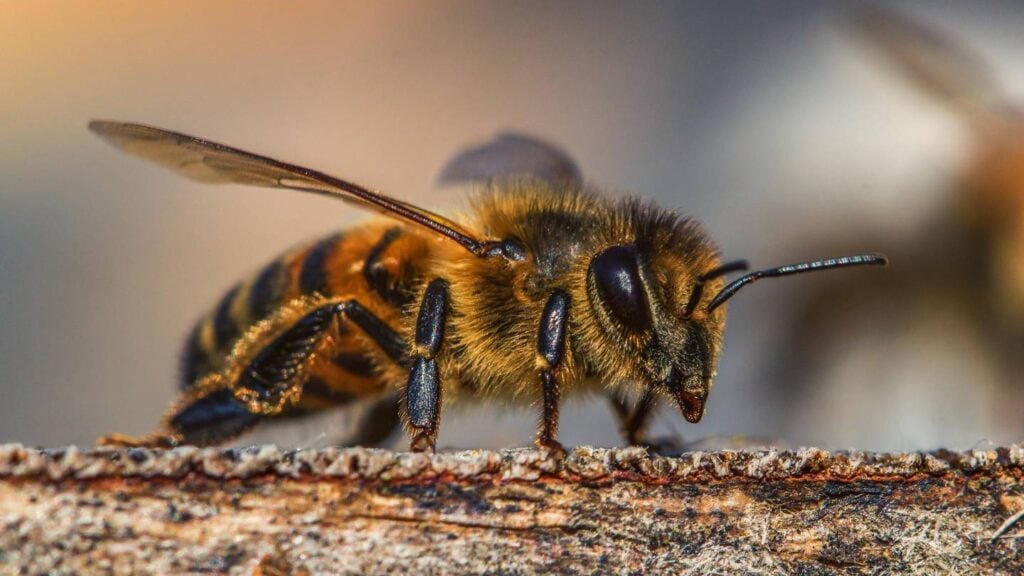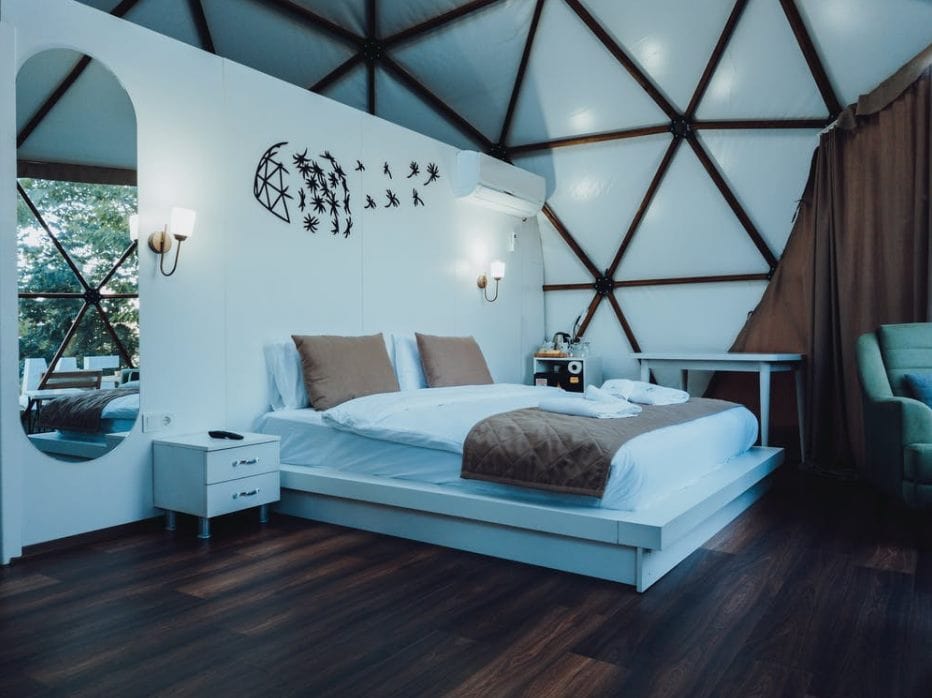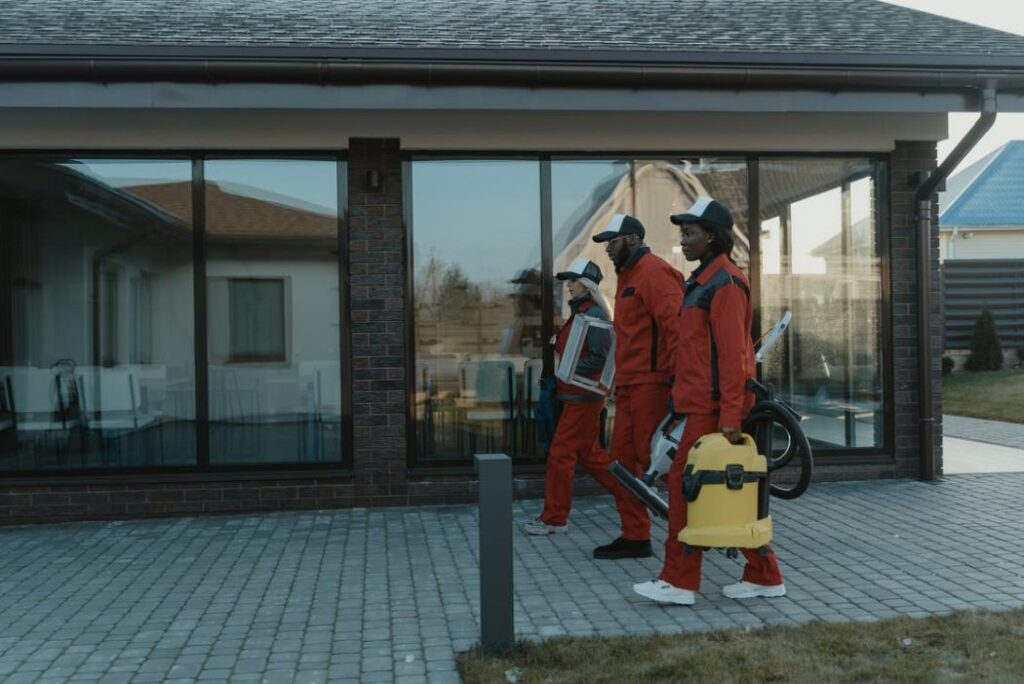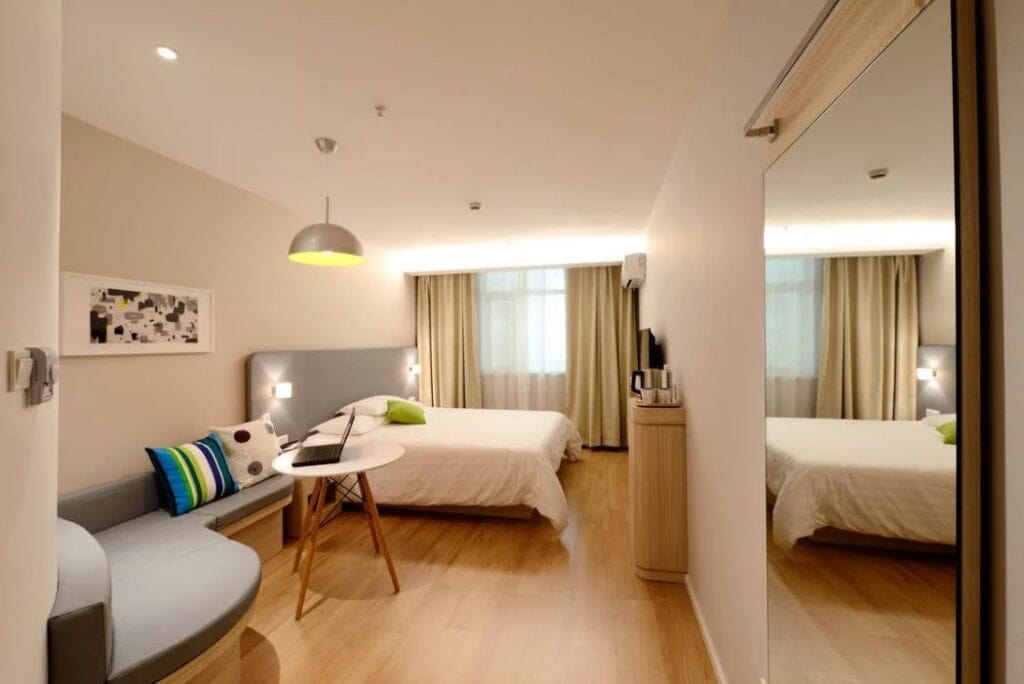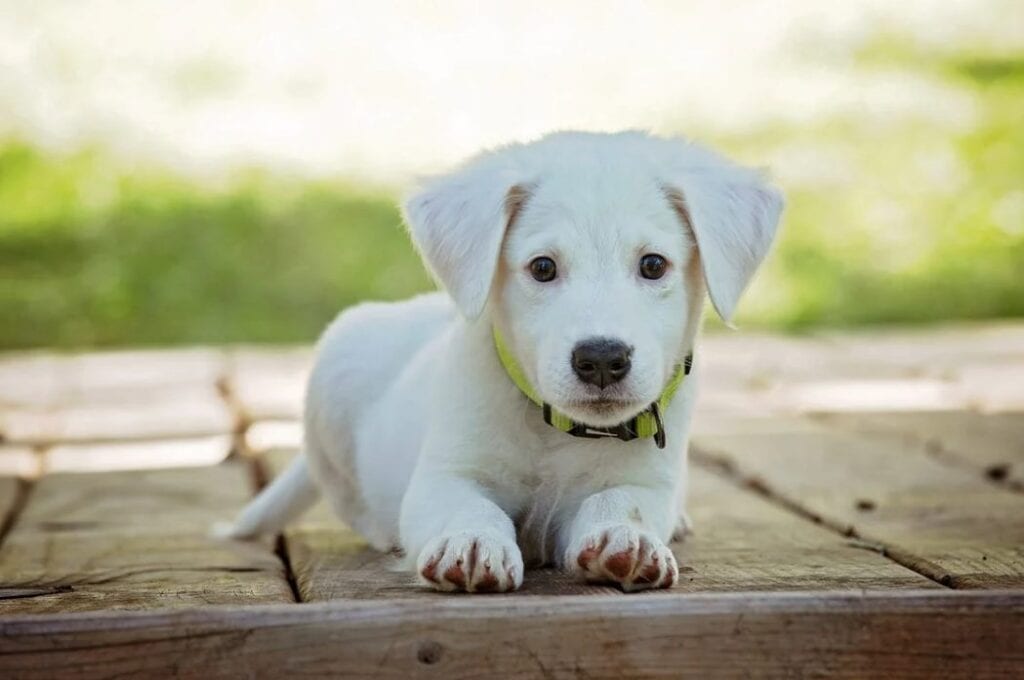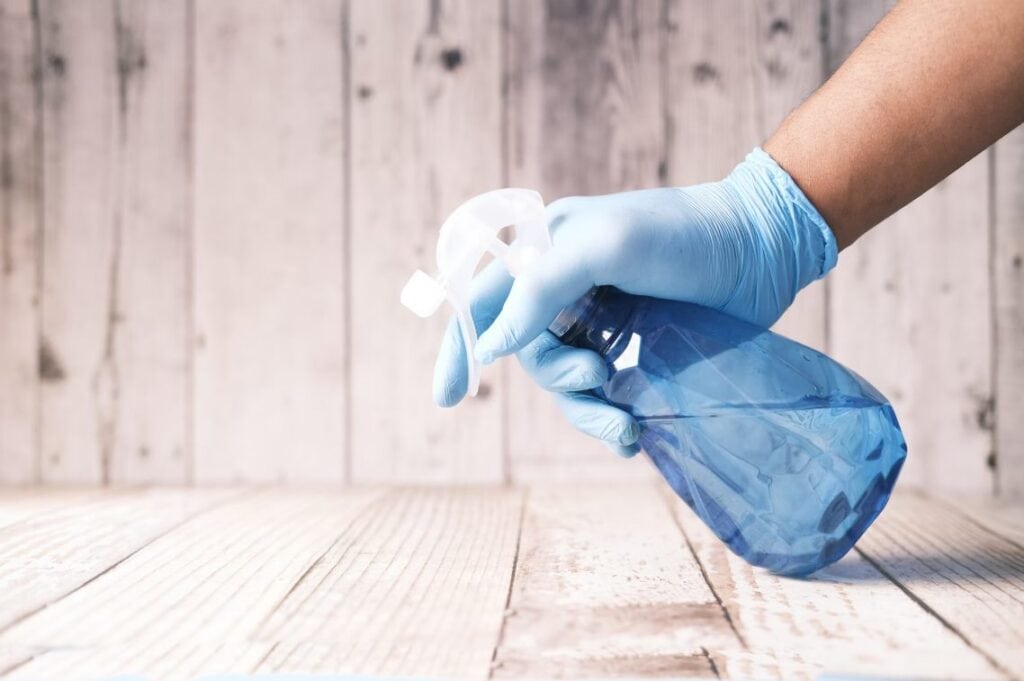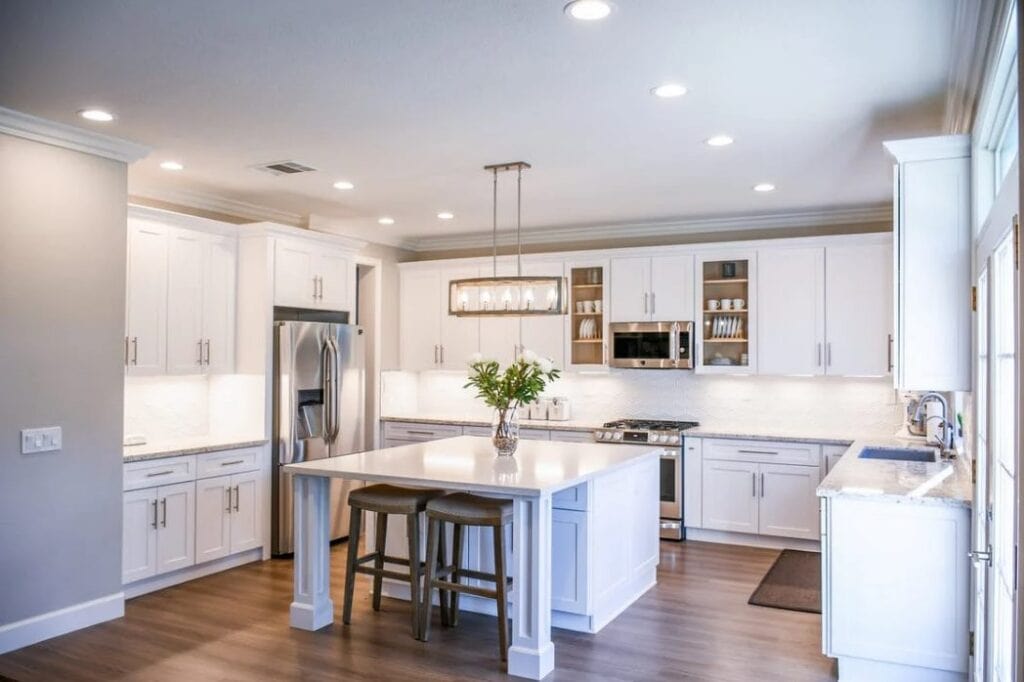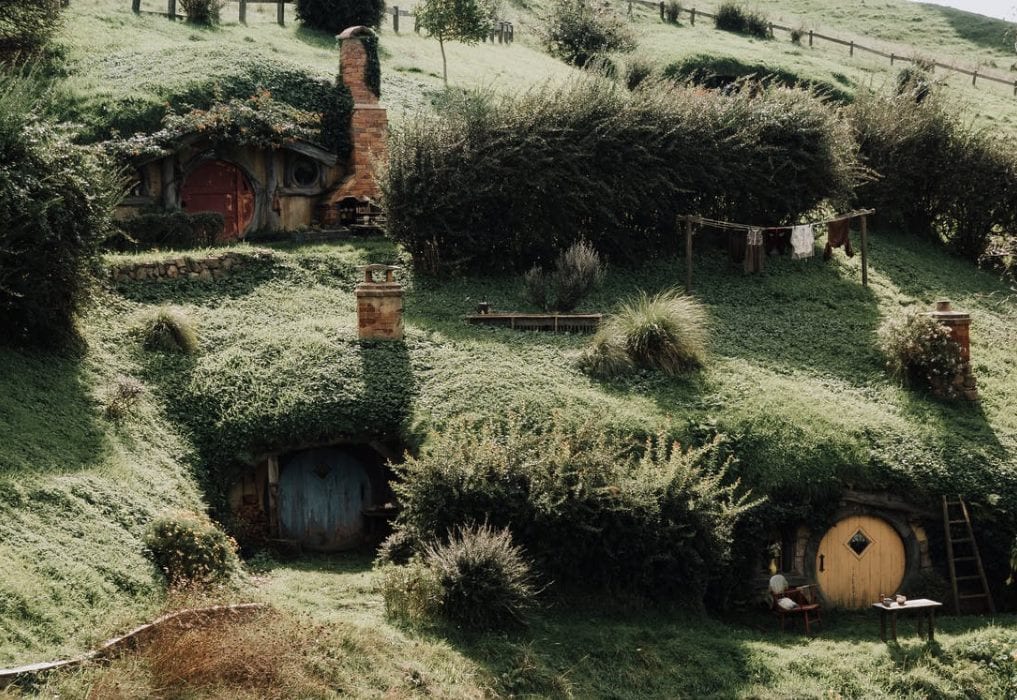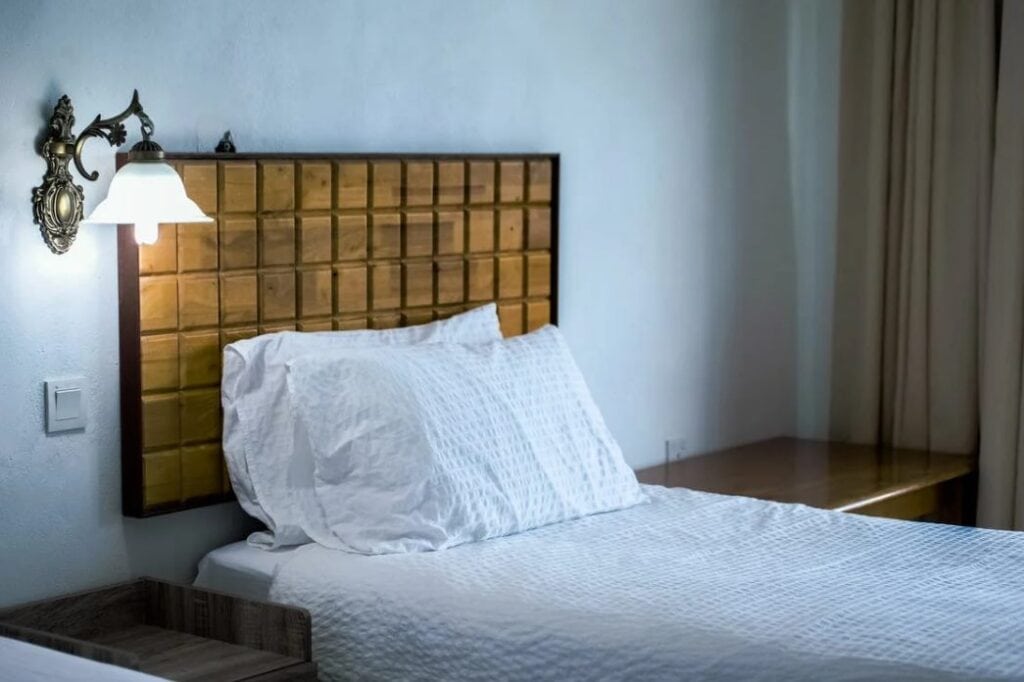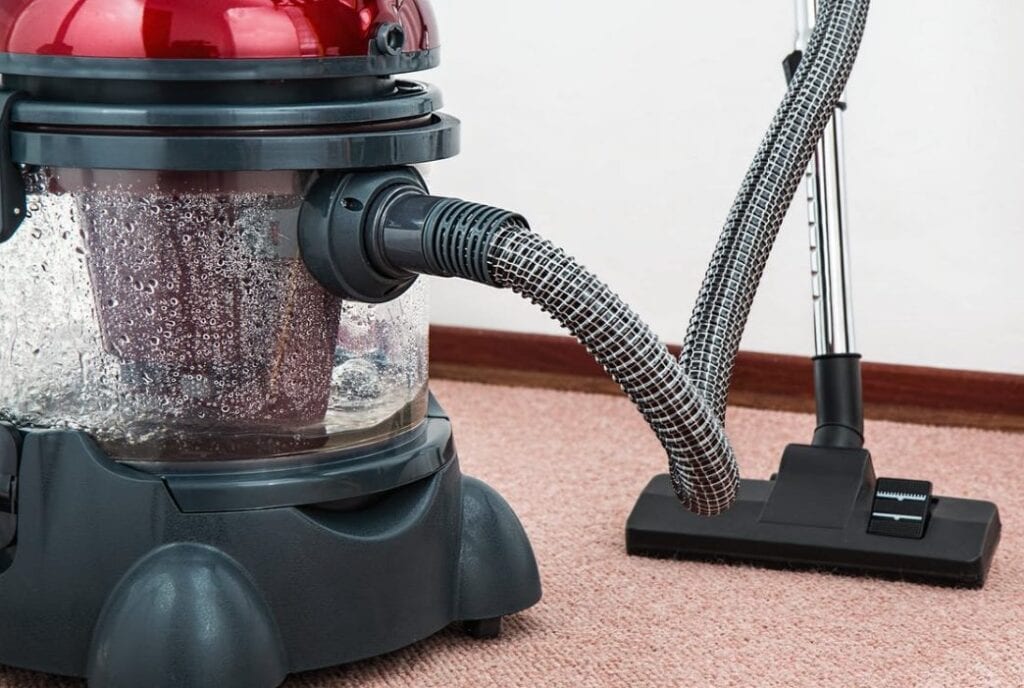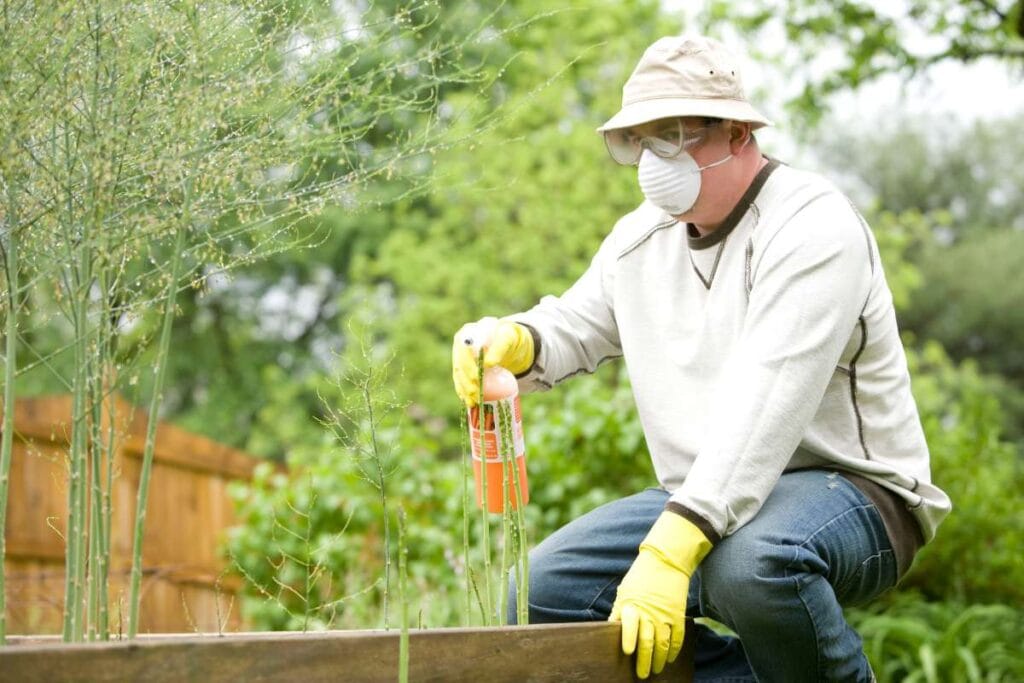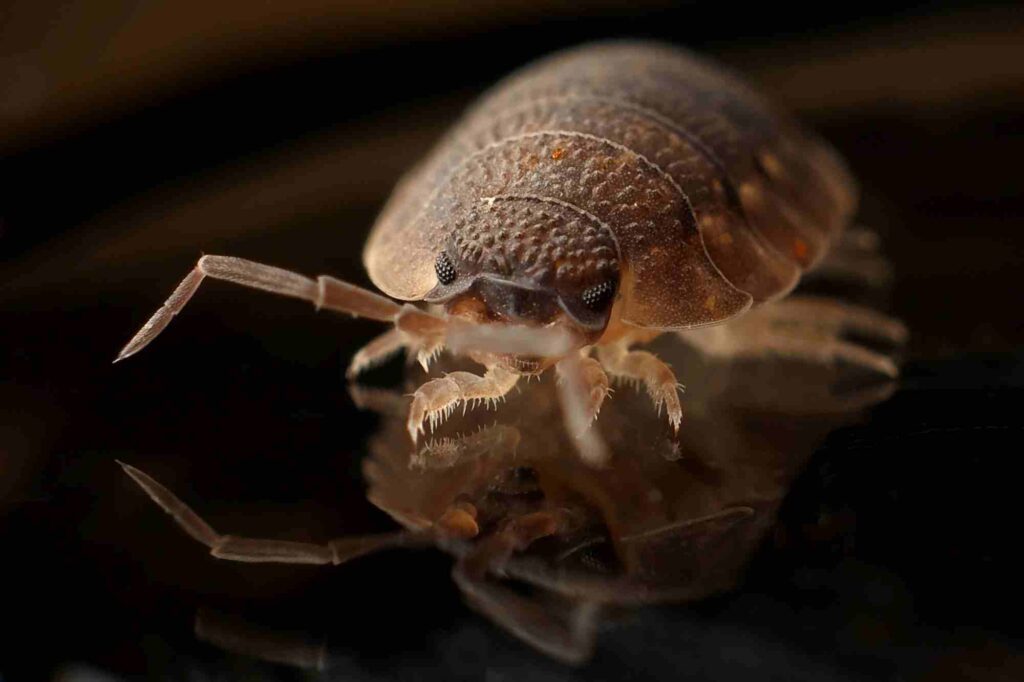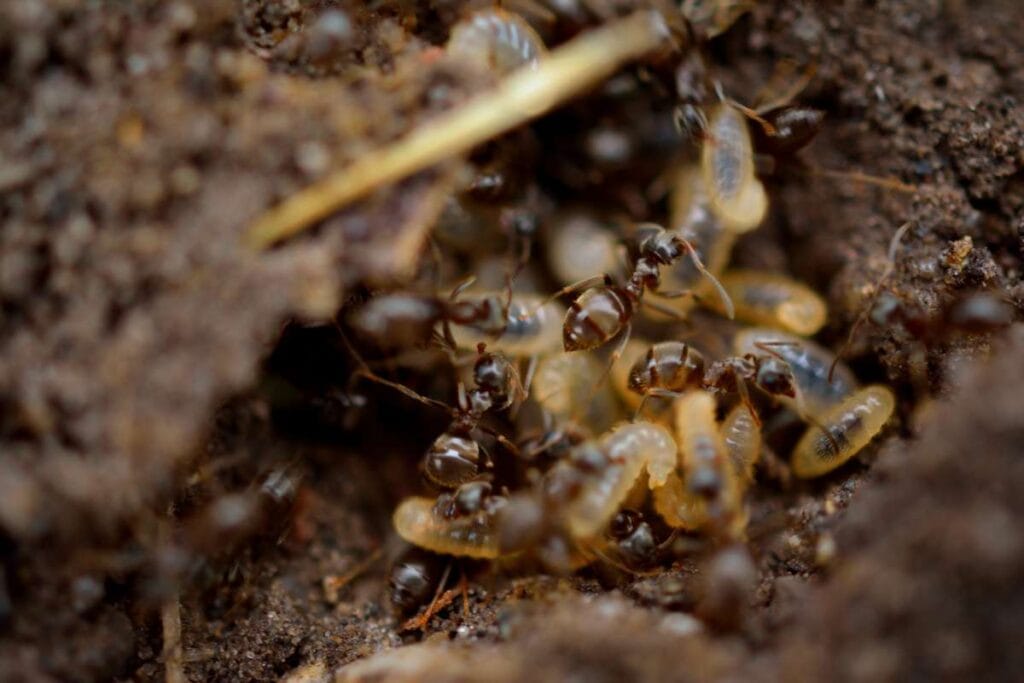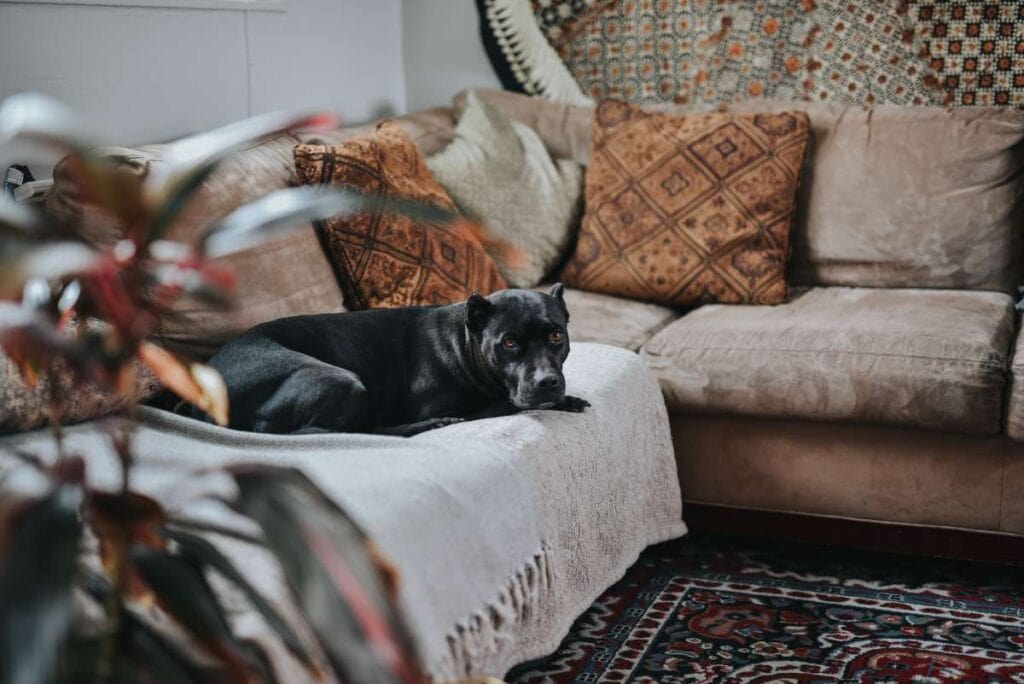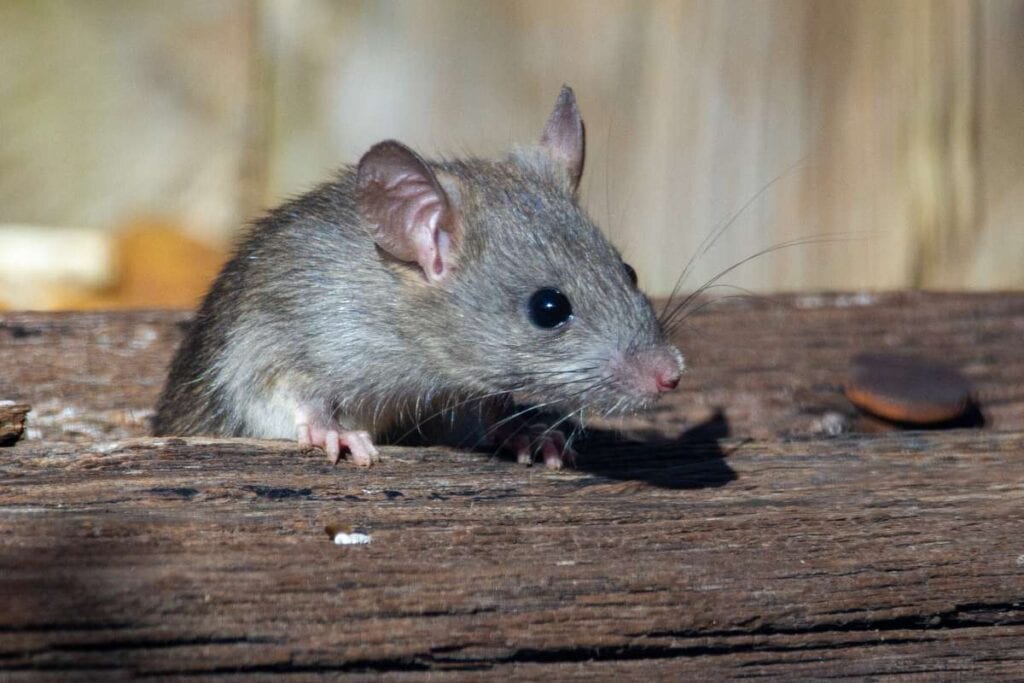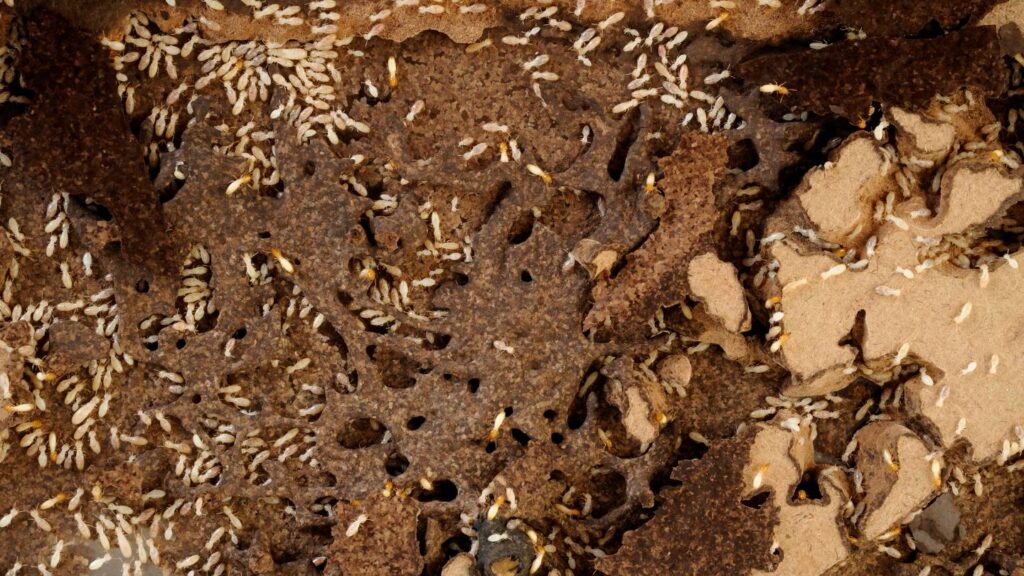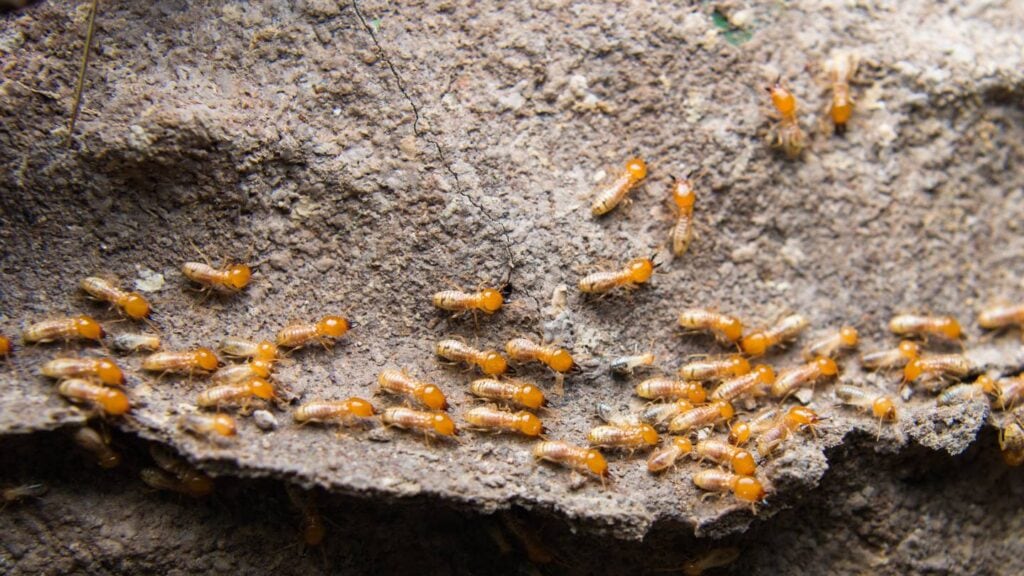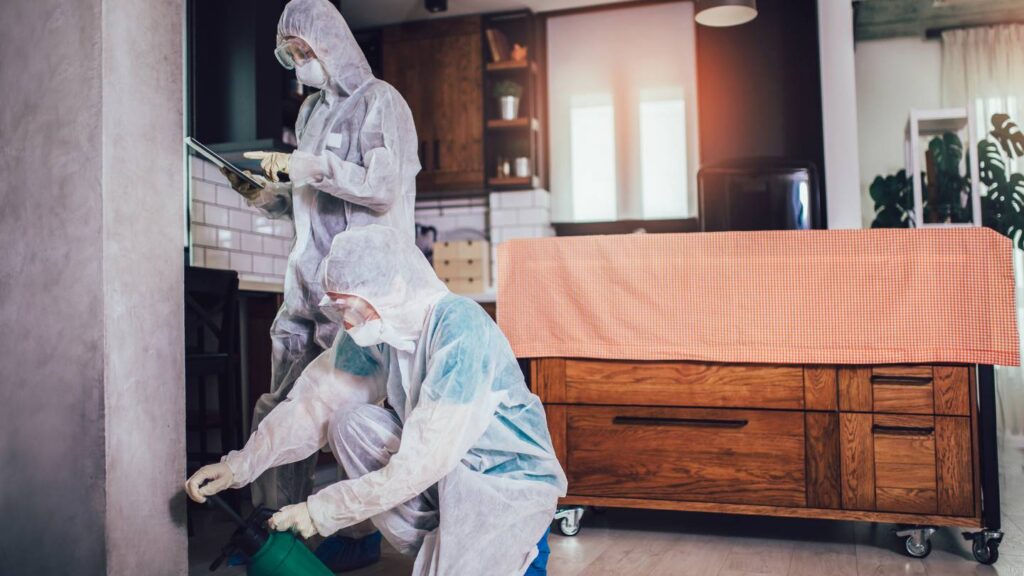Has the possibility of keeping pests out of your garden without harming our bee buddies ever crossed your mind? Finding a middle ground between protecting pollinators and warding off pests is an important issue for ecologists and gardeners in a world where environmental sustainability is taking centre stage.
To summarise, you can naturally discourage pests by using bee-friendly plants and activities. You may build a healthy garden ecosystem that attracts bees and discourages pests by using environmentally friendly gardening practices and picking the correct species. So, let's explore the intriguing realm of sustainable gardening approaches that benefit your plants and these vital pollinators.
Come along as we investigate how to create a mutually beneficial landscape for nature and your green thumb by combining bee-friendly plants with effective bug deterrents.
Bees and Their Significance
Every one of us relies on biodiversity, and bees are just one component. Their products include pollen, honey, royal jelly, beeswax, propolis, honey bee venom, and beeswax.
Many rural communities rely on beekeeping as a significant source of revenue. With over 80 million hives producing an estimated 1.6 million metric tonnes of honey each year, western honey bees are the most extensively managed pollinators on a global scale, as reported by IPBES.
Plants, including many food crops, can reproduce thanks to animals and insects that collect and disperse pollen from blossoms. Most pollination occurs in insects, particularly bees. However, humans, primates, rodents, and birds also play a role.
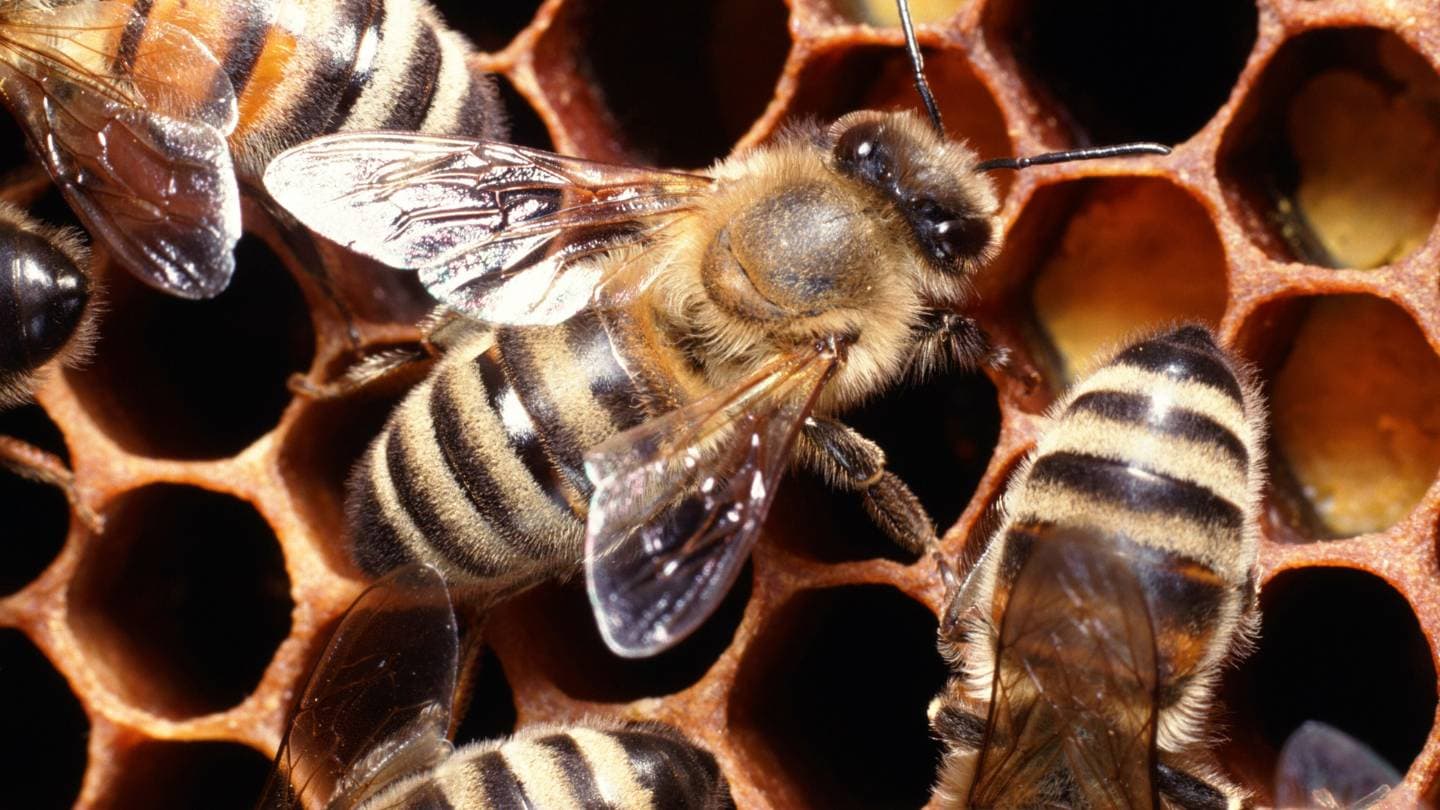
Plants That Are Good for Bees
Nowadays, everyone loves a garden with plants, cycads, and palm trees that don't need much care. Everyone except the bees. Honey bees that were brought to Australia and local bees that live there need flowering plants to live.
They get sap from flowers to make honey and pollen simultaneously. The pollen spreads to other flowers and pollinates the plant. Bees need honey and pollen to get through the winter. They might not make it if there aren't enough flowers for them to eat.
Planting flowers in your garden is a simple method to assist native and honey bees. A variety of flowering plants that bees like are all that's needed; a large garden or elaborate landscaping isn't necessary. An abundance of flowers that are good for bees is here this year.
Spring
Lavender
Beginning in the spring and continuing far into fall, this popular plant bears flowers. Native and exotic bees swarm to it for its intense aroma, towering purple blossoms, and plenty of honey and pollen. As a shrub, lavender can range in size from little to medium and is often really easy to grow.
Daffodils
Daffodils are a sure sign of early spring because their flowers are so happy and bright, coming in a range of yellows and oranges. They come from bulbs and can bloom late in the winter if the weather is right where you live. The bright flowers are appealing to bees.
St John's Wort – Hypericum
About 500 flowering plants, ranging in size from little herbs to towering shrubs, comprise this genus. From pale to brilliant, a spectrum of yellows is seen in flowers. The blooms are ideal for gathering nectar because of their flat, broad shape, open petals, and upright stamens. Midway through the summer, the majority of species bloom.
Sage-Salvia
Salvia is the group that includes the sage we use in cooking. Aussie bees like the tall purple and blue flowers that bigger ornamental species create. Another place where people like salvia is Australia. It grows well there because it doesn't need much care and can be grown in pots. Most Salvia blooms from the middle of spring to the middle of summer.
Bottlebrush
In addition to attracting native bee species, the bottlebrush is both visually appealing and hardy, making it an ideal screening tree or hedge. The bristly, bright red blossoms bloom in the spring and continue into the fall.
Summer
Sunflowers
One flower that everyone knows is the sunflower. Their big yellow flowers comprise thousands of tiny flowers clumped together, giving bees plenty of pollen and nectar to eat. Sunflowers bloom all summer long and into fall. They are easy to grow from seeds.
Abelia Grandiflora
Native bees, such as Blue-banded, Teddy Bear, and Carpenter bees, are particularly drawn to the bell-shaped flowers that this shrub produces in abundance, which can be white or pink. Native bees rely on it heavily since it blooms from December into late fall and produces copious amounts of pollen and nectar.
Cosmos
Cosmos has big, flat, bright blooms in pink, yellow, orange, and white, which bees like. The plant is simple to grow and doesn't need much care. The cosmos blooms from summer to early fall.
Calendula
Calendula is an annual that self-seeds and produces big, multi-layered yellow and orange blossoms. It blooms all summer, giving native and introduced bees a substantial supply of nectar and pollen.
Autumn/Winter
Daisies
Honeybees and native bees swarm daisies for their flat, open blossoms, ideal for collecting pollen and nectar. Cut Leaf Daisy, Federation Daisy, and the more recent introduction, the African Daisy, are just a few natural species. Some daisies, like the Federation Daisy, bloom from fall to spring, while daisies generally have lengthy flowering periods.
Borage
The plant is very pretty, but its name could be more appealing. Borage is a small bush with blue-purple flowers that look like stars and are liked by both local and foreign bees. It's also a herb that has been used for medicine for a long time. It's easy to grow borage in pots if you don't have a limited amount of space in your yard. It blooms in the fall.
Nasturtium
The bell-shaped blossoms of the nasturtium, a ground-creeper, are brilliant orange or yellow. Both native bees and honeybees flock to its fall blossoms. Bonus: nasturtiums aren't hard to grow, and you can eat the blossoms. They are perfect for adding a splash of colour to salads or pastries.
How To Get Bees To Visit Your Garden With Native Plants?
Banksia
These wildflowers from Australia appear in a rainbow of colours and are incredibly drought-tolerant. Their shared trait is an attractive cone-shaped flower spike that attracts a diverse array of pollinators.
Wildlife like bees, birds, bats, and possums eat the nectar of Banksia, which helps other plants grow by spreading pollen. You can plant Banksia in the ground or pots with Scotts Osmocote Native Potting Mix at any time of the year. Please put it in full sun and water it often until it grows.
Grevillea
Grevilleas, sometimes called spider flowers, are a genus of several hundred native Australian evergreen shrubs and small trees. They entice many different kinds of pollinators, such as birds, moths, and butterflies.
Beginning in December, you can take soft tip cuttings and let them grow before putting them outside. Different types of Grevillea can handle different temperatures. Some can handle very cold weather, but others can't so check the specific species before you decide where to put it.
Be sure to place your Grevillea in an area with plenty of sunshine and adequate drainage, and sprinkle Scotts Osmocote Controlled Release Fertiliser for Natives around the soil as a form of care.
Native Rosemary (Westringia Fruiticosa)
The coastal rosemary, a tiny shrub with exquisite white to light blue blooms, is native to Australia's eastern coastlines. It is a very adaptable plant to add to the garden because it can withstand various soil conditions.
Pollinators, such as blue-banded bees, find it very attractive because flowers bloom most of the year. When the plants are young and sensitive in the spring, you can take cuttings from them and put them outside before winter.
Bottlebrush
Bottlebrushes can be found all over the country. Native bees and birds are especially drawn to their unique flowers that look like brushes. They usually need full sun and moist conditions, but some species can handle being dry.
Once seeds or semi-ripe cuttings are large enough to be planted outside, pot them on. Bottlebrush plants make excellent privacy screens around a garden because of their dense growth.
Cut-Leaf Daisy (Brachyscome multifida)
This fragile perennial has lovely, center-flowering flowers in shades of light pink, pastel purple, or white. Bees and other helpful insects can easily collect nectar from the flowerheads because of their flat configuration.
Cut-leaf daisies do best in full sun and can grow in many different soil types, even very dry ones. This plant's stems will grow new shoots without much help, and the plants will probably spread out across the dirt on their own. Just dig up a clump and move it to where you want it.
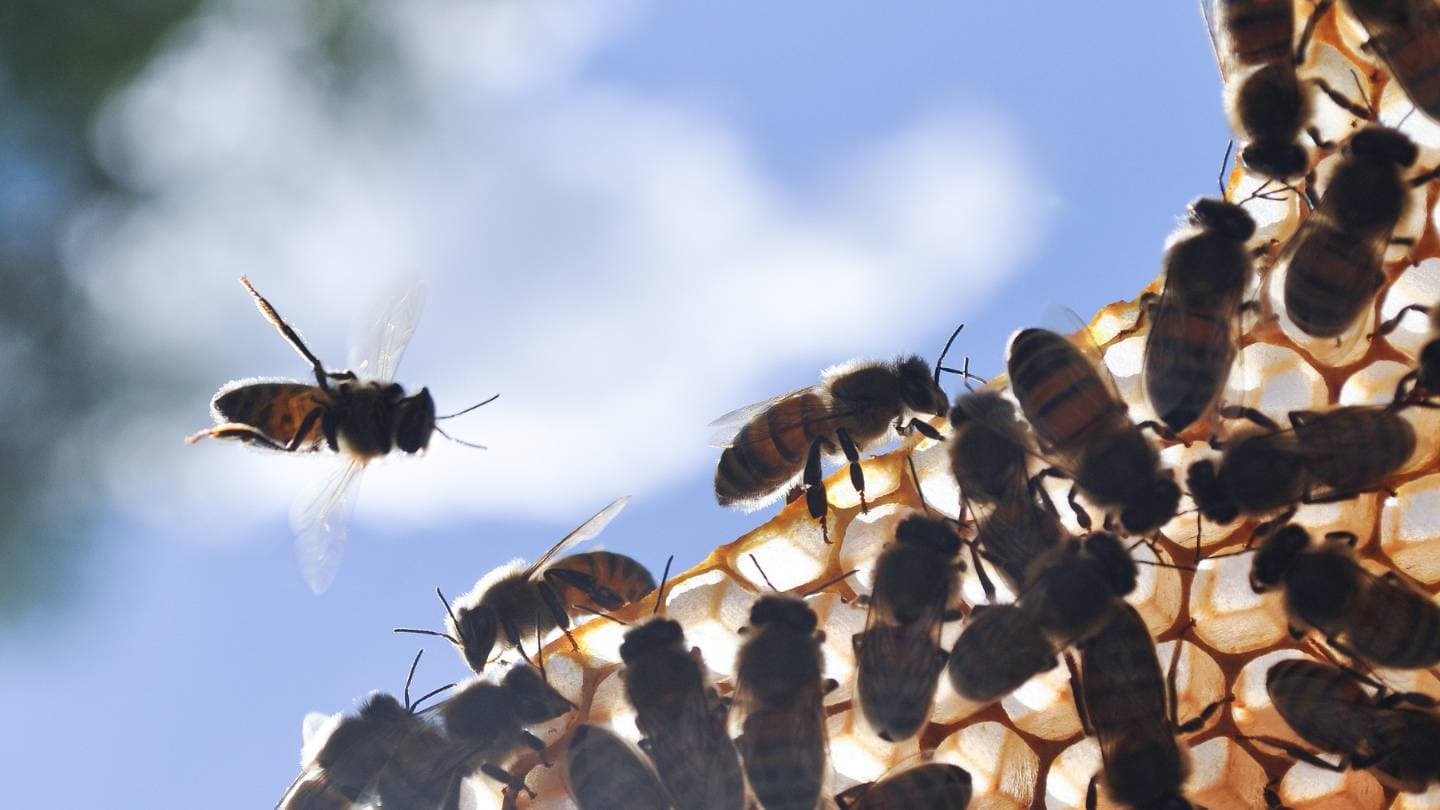
Advice on How to Preserve Bees
- Supporting Local Beekeepers: Support your neighbourhood beekeepers by buying honey and other beeswax products. Doing so will aid local bee populations while also supporting the beekeeping sector. Based on the indigenous flora, honey from the area tends to be of higher quality and may even have its distinct flavour.
- Participating in Bee-Friendly Garden Initiatives: Get engaged in community efforts to establish bee-friendly gardens. Numerous local organisations and schools organise planting days emphasising plants that attract bees. Participate in these programmes to help your community's bee-friendly habitats grow.
- Avoiding Harmful Chemical Pesticides: Choose natural and organic methods to eliminate pests in your yard. Chemical poisons can hurt bees and other good bugs. Check for labels that say the product is safe for bees, or use neem oil, diatomaceous earth, or soap-based solutions instead.
- Planting Bee-Friendly Gardens: Consider planting flowers, herbs, and bee-friendly shrubs if you have a garden or even just a little outside area. For example, bee balm, sunflowers, rosemary, and lavender are great options. These plants are a haven of food and shelter for pollinators like bees.
- Educating Others: Make people aware of the value of bees and what they do for the environment. Get everyone you know to make bee-friendly choices in gardening and everyday life.
- Supporting Pollinator-Friendly Policies: Promote regional and federal legislation that safeguards pollinators. Participate in bee conservation-related campaigns and organisations and support projects that advance environmentally friendly agricultural methods.
- Limiting the Use of Lawn Chemicals: Herbicides and synthetic fertilisers are chemicals you should use less or less in your yard. Bees can get hurt by these chemicals when they visit growing plants in your yard to get nectar and pollen.
- Avoid Disturbing Bee Nests: If you encounter a bee nest in your garden or property, avoid disturbing it. Many bee species are solitary and non-aggressive unless provoked. For any bee removal needs, get in touch with a beekeeper in your area.
- Planting Trees and Shrubs: Trees like fruit trees and willows, as well as shrubs like butterfly bushes, can provide additional sources of nectar and pollen for bees. Consider incorporating these into your landscape.
- Providing Water Sources: Place shallow dishes of clean water in your garden. Bees need water to drink and cool down, especially during hot weather. Adding rocks or marbles to the water dish can provide them with a safe landing spot.
Conclusion
Plants and methods that are good for bees can help you make a healthy garden environment that bees will enjoy and that will keep pests away. Bees produce pollen, honey, royal jelly, beeswax, propolis, honey bee venom, and beeswax. They are very important to ecology. Western honey bees are the most widely managed pollinators in the world. Each year, more than 80 million hives produce about 1.6 million metric tonnes of honey.
A simple way to help native and honey bees is to plant flowers in your yard. All that is needed are different flowering plants that bees like. You don't need a big yard or a lot of landscaping. In the spring, bees can eat sage-salvia, bottlebrush, sunflowers, Abelia Grandiflora, cosmos, calendula, daisies, borea, nasturtium, and St. John's Wort (Hypericum).
Lavender flowers from spring to fall, and the strong smell, tall purple flowers, and lots of honey and pollen make them very appealing to bees, both local and foreign. In early spring, daffodils bloom, and they're easy to grow. On the other hand, St. John's Wort (Hypericum) has about 500 flowering plants that are great for collecting juice. Sage is in the sage family, which is liked by Australian bees because it doesn't need much care and grows easily in pots. Bottlebrush is hardy and looks nice, which makes it a great tree or shrub for privacy.
You can also give daisies, Borage, and nasturtium to bees in the fall and winter. Their flat, open flowers are great for gathering pollen and nectar. You can make a landscape that is good for both nature and your green thumb by mixing plants that are bee-like with plants that keep bugs away.
Many different kinds of pollinators like Banksia, Grevillea, Native Rosemary, Bottlebrush, and Cut-Leaf Daisy, which are all native Australian plants. Banksia is a drought-resistant plant with a cone-shaped flower spike that birds, bees, bats, and possums like. Grevilleas, which are native to Australia and are also called "spider flowers," are evergreen shrubs and small trees that birds, moths, and butterflies like to visit. Bottlebrush plants are native to the eastern coasts of Australia. They are flexible and can grow in a wide range of soils.
The Cut-Leaf Daisy is a delicate annual plant with flowers in the middle. It grows best in full sun and can handle a wide range of soils, even ones that are very dry. Its roots will grow new shoots on their own, and the plants will probably spread out on the ground on their own.
To save bees, buy honey and other beeswax products from local beekeepers, take part in bee-friendly garden programmes, avoid using harmful chemical pesticides, plant bee-friendly gardens, teach others about bees' value and importance, support pollinator-friendly policies, use less lawn chemicals, don't disturb bee nests, plant trees and shrubs, and provide water sources. By using these tips, you can help protect bee populations, encourage beekeeping, and push for farming ways that are better for the environment.
Content Summary
- Utilising bee-friendly plants and practices can naturally deter pests without harming bees.
- A balance between protecting pollinators and managing pests is crucial for sustainable gardening.
- Cultivating a garden ecosystem that attracts bees can naturally reduce pest presence.
- Biodiversity is essential, with bees playing a key role in pollination and ecosystem health.
- Beekeeping is a significant source of income in rural communities globally.
- Bees are major pollinators for many plants, including food crops.
- Australian gardens need flowering plants that attract honeybees and native bees for sustenance.
- Planting a variety of flowers supports both native and honey bees.
- Lavender, a bee-friendly plant, blooms from spring to fall, offering ample nectar and pollen.
- Daffodils, signalling early spring, attract bees with their bright flowers.
- St John's Wort, with its flat, broad flowers, is ideal for bees to collect nectar.
- Sage-Salvia, popular among Aussie bees, blooms with tall purple and blue flowers.
- Bottlebrushes, with bristly red flowers attract native bees and serve as effective hedges.
- Sunflowers, known for their large yellow blooms, provide bees with abundant pollen and nectar.
- Abelia Grandiflora, with bell-shaped flowers, is a key nectar source for native bees.
- Cosmos, easy to grow, offers big, bright blooms that attract bees.
- Calendula, blooming all summer, provides bees with substantial nectar and pollen.
- Daisies, with flat open blooms, are popular among honeybees and native bees.
- Borage, with star-like blue-purple flowers, is a medicinal herb that attracts bees.
- Nasturtiums, with bell-shaped orange or yellow flowers, are both bee-friendly and edible.
- Banksia, with cone-shaped flower spikes, attract a variety of pollinators and are drought-tolerant.
- Grevillea, or spider flowers, attract diverse pollinators and can be grown from cuttings.
- Native Rosemary, with its attractive flowers, is a versatile plant attracting bees throughout the year.
- Bottlebrushes, widespread in Australia, are attractive to native bees and birds.
- Supporting local beekeepers by purchasing honey and beeswax products helps bee populations.
- Participation in community bee-friendly garden initiatives fosters local pollinator-friendly environments.
- Avoiding harmful chemical pesticides protects bees and other beneficial insects.
- Planting bee-friendly gardens with flowers and herbs provides food and shelter for pollinators.
- Educating others on the importance of bees and sustainable gardening practices raises awareness.
- Advocating for pollinator-friendly policies supports bee conservation efforts.
- Reducing lawn chemical use safeguards bees from harmful substances.
- Non-disturbance of bee nests in gardens ensures the safety and well-being of solitary bees.
- Planting trees and shrubs like fruit trees and butterfly bushes offers additional nectar and pollen sources.
- Providing water sources in gardens helps bees with hydration and cooling needs.
- Using eco-friendly gardening practices creates a harmonious environment for plants and pollinators.
- A diverse garden with a range of flowering plants ensures continuous food sources for bees.
- Selecting plants that bloom in different seasons offers year-round support for bee populations.
- Understanding the specific needs of local bee species enhances garden planning for pollinator support.
- Incorporating native plants like Banksia and Grevillea into gardens supports local ecosystems.
- Choosing drought-tolerant bee-friendly plants ensures garden sustainability and resilience.
- The use of controlled-release fertilisers for native plants benefits both plants and pollinators.
- Plant cuttings and seed propagation of bee-friendly plants can expand pollinator habitats.
- Gardens can be both visually appealing and functional in supporting bee populations.
- Awareness of the ecological impact of gardening choices can lead to more sustainable practices.
- Bee-friendly gardening is a holistic approach that considers the needs of the entire ecosystem.
- The mutual benefits of bee-friendly gardens extend to both nature and garden enthusiasts.
- Sustainable gardening practices align with environmental conservation goals.
- Selecting the right plant species is key to creating a bee-friendly garden environment.
- Bee-friendly gardening practices contribute to the overall health and diversity of the ecosystem.
Frequently Asked Questions
Yes, there are several bee-friendly plants that can help deter pests in your garden. Some examples include marigolds, lavender, and mint. These plants emit natural scents that repel common garden pests like aphids and mosquitoes while attracting beneficial bees.
No, using bee-friendly plants will not harm the bee population in your area. In fact, it can benefit local bees by providing them with a source of nectar and pollen. Bee-friendly plants help support pollinators and contribute to the overall health of the bee population.
To ensure that bee-friendly practices are safe for both bees and your garden, avoid using chemical pesticides and opt for natural alternatives like neem oil or insecticidal soap. Additionally, plant a variety of bee-friendly plants to provide food for bees throughout the year.
Yes, there are specific bee-friendly practices that can deter specific pests. For example, planting marigolds can help deter aphids, while introducing ladybugs to your garden can control aphid populations naturally. Research and choose bee-friendly plants that target the pests you want to deter.
Yes, you can have a pest-free garden while promoting bee-friendly practices. By carefully selecting bee-friendly plants that also repel pests, using natural pest control methods, and maintaining a balanced ecosystem in your garden, you can enjoy a beautiful garden while supporting bee populations.

